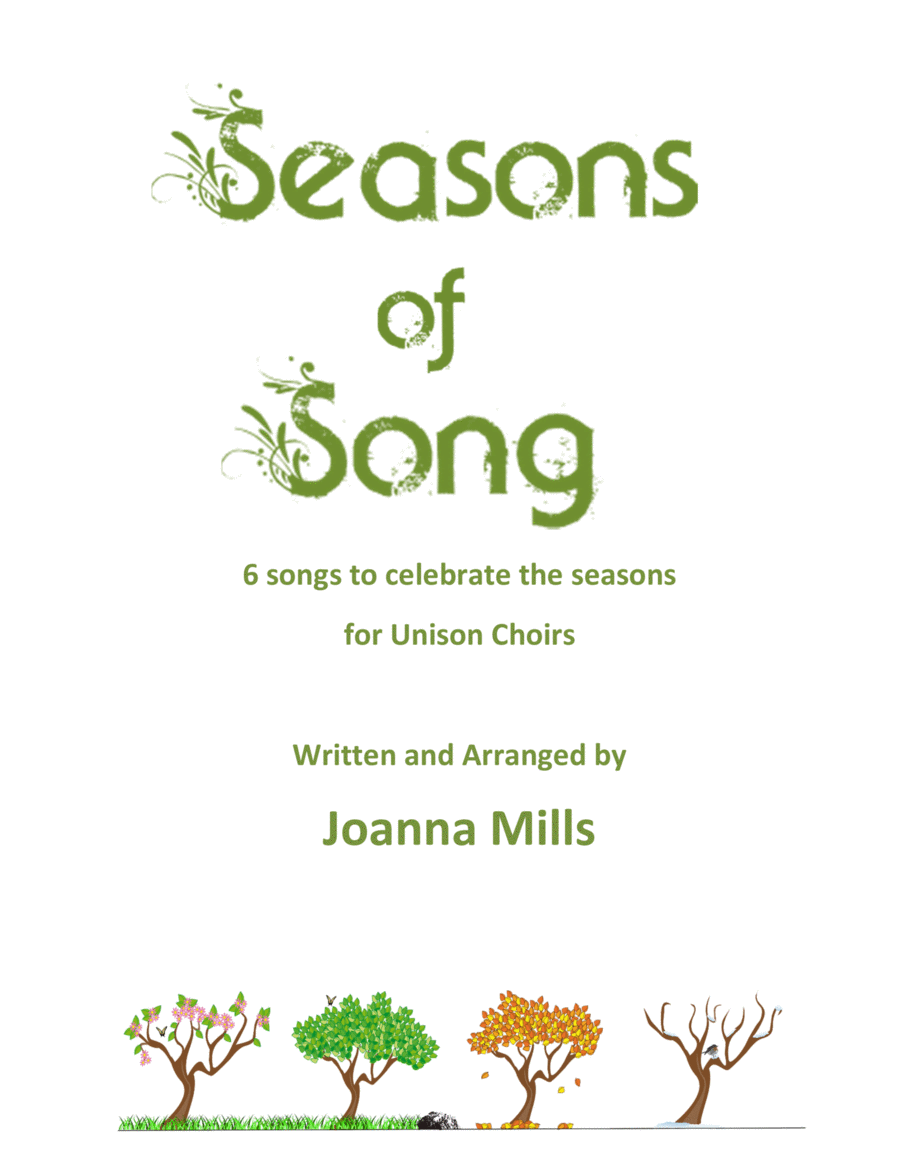Choral Choir (Unison) - Level 1 - Digital Download SKU: A0.781401 Composed by Joanna Mills. Broadway,Children,Contemporary,Holiday,Instructional,Musical/Show. Octavo. 52 pages. Joanna Mills Music #6687495. Published by Joanna Mills Music (A0.781401). Celebrate all four seasons with your unison choir with this collection of six original songs by award-winning composer Joanna Mills and save more than 50% by purchasing this collection instead of individually! All pieces are set in accessible keys for young children and feature easy, short, optional echo/harmony parts for added interest and challenge. The piano parts support the melody to assist very young singers, and guitar/ukulele chords are included! Full scores and additional one-page lyric sheets are included for the following songs:Autumn Days (Late Summer/Fall): A dreamy melody accompanies an adaptation of the poems October and November by Helen Hunt Jackson. Butterflyin’ (Spring, Summer) : Inspired by the story of the Boy and the Butterfly, this lovely song tells the tale of a weary caterpillar who perseveres through many struggles, holds onto its dreams, and emerges a beautiful butterfly. First Snow (Late Fall/ Winter): This hauntingly beautiful original song celebrates the magic of winter's first snowfall! The Crocuses (Late Winter/Spring) : Set to a sweet, original melody, Frances Ellen Watkins Harper's poem The Crocuses has been adapted into a lovely song about the first flowers of spring and their love for Mother Earth. The Winding Creek (Late Spring/Summer) : This folk-style song evokes nostalgic summer memories of long hot days spent playing in a country creek. The World is a Rainbow (Spring/Summer/Fall):This fun and upbeat song teaches the colours of the rainbow by listing many red, orange, yellow, green, blue, indigo and violet items found in nature! Joanna Mills' passion is music and singing. From 1998 to 2018, she was the director of the Roncesvalles Gospel Choir and has written and directed many original children's musicals at Roncesvalles United Church. From 2011 to 2020 Joanna was the music director and head vocal teacher at Broadway Arts Centre. She performs frequently in local festivals and clubs with her six-voice folkgrass ensemble North of Queen and also sings with Toronto’s premiere rock choir newchoir. Joanna is an award-winning songwriter (Songdoor, Song of the Year, ISSA) and arranger and her works have been performed by choirs and bands all over the world. Trained formally in voice, piano, and oboe throughout her younger years, Joanna has sung in (and lead) various choirs, performed with the New Westminster Musical Theatre Guild, and teaches Musical Theatre, piano, and voice at her studio in Toronto, Ontario.
